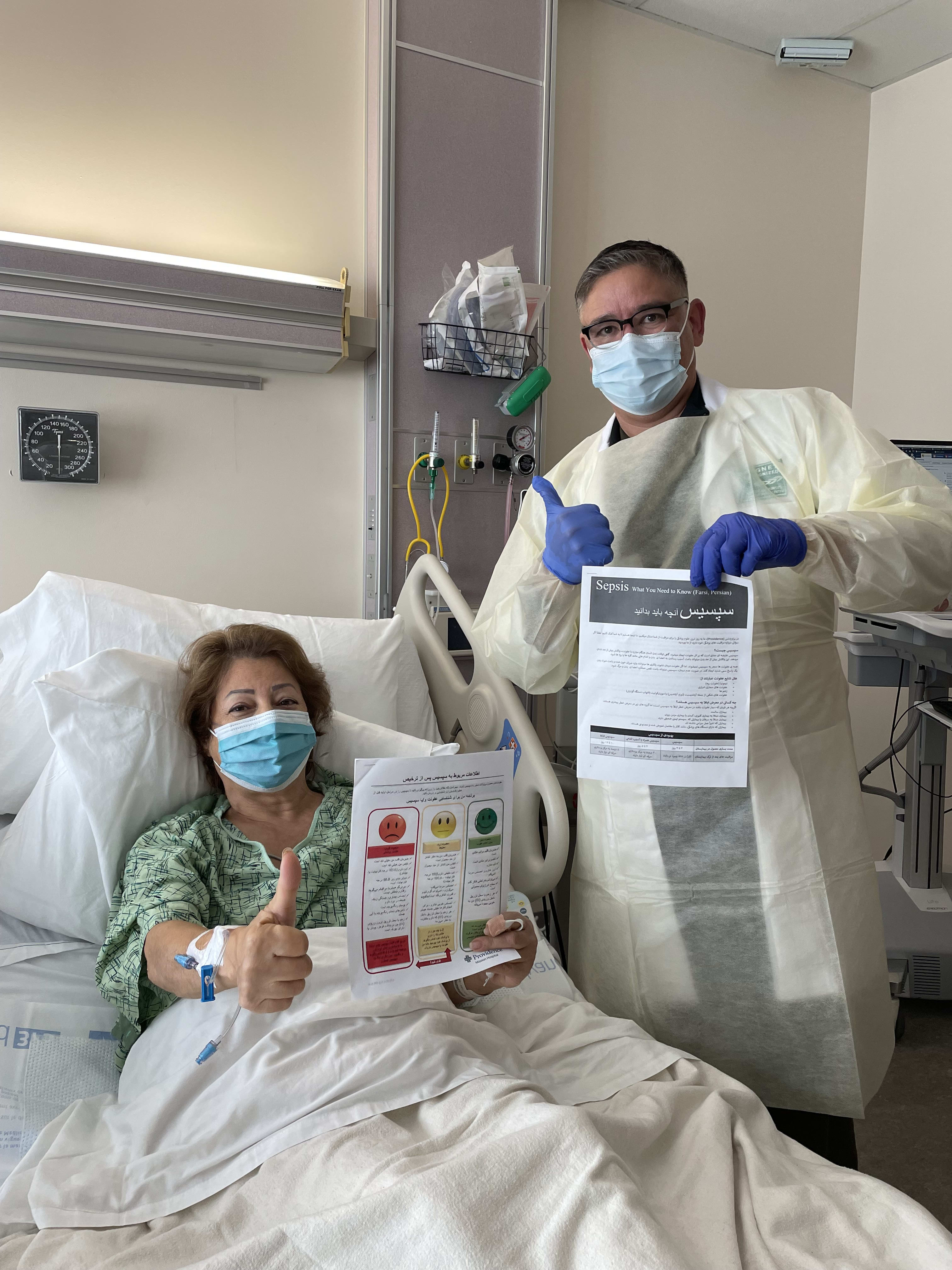Health Equity fellows improve outcomes for Black patients and those with limited English proficiency

In 2020, Providence made a $50 million commitment to reduce health disparities for communities who have historically been underserved or marginalized. Through this commitment, Providence launched its Health Equity Fellowship in 2023 to build caregivers’ capacity and expertise through classroom learning and the real-time application of health equity principles.
Twenty fellows across the Providence family of organizations joined the program’s inaugural year. Fellows Moojan Rezvan and Shelley Schoepflin Sanders, M.D., have dedicated their projects to improving the health outcomes of sepsis patients.
Providence hospitals and affiliates care for 44,000 sepsis patients annually and Black patients and patients with limited English proficiency have, on average, higher readmission rates and longer lengths of stay than their white, English-speaking counterparts.

To address these issues, Rezvan created a nurse navigator role to offer sepsis education and support in patients’ preferred language.
“Our focus is to ensure patients understand their care. Two navigators are bilingual English-Spanish and all have strong backgrounds treating sepsis,” said Rezvan, adding that the fellowship training was instrumental in shaping her project. “Without the fellowship grant, this wouldn’t be possible.”
For her work, Dr. Sanders created educational materials with direct input from Black sepsis survivors. Through focus groups, survivors co-created a graphic novelette highlighting a conversation between a patient and their physician.
“Surviving sepsis is a traumatic experience,” Dr. Sanders said. “Retelling the story can be healing.”
Initial outcomes from both programs are promising, with average lengths of stay and readmission rates improving.
“This is the work. We are here to serve,” Dr. Sanders said.